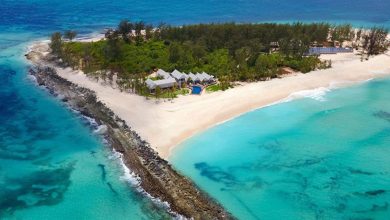Why stakeholders call for ban on ‘Japan’ fishing nets to save L. Victoria’s blue economy

MWANZA: FISHING stakeholders in the Lake Victoria Zone are sounding the alarm over what they’ve dubbed the ‘Japan’ fishing net. Why Japan, you ask? Apparently, it’s because these nets are as durable as the Japanese’s Toyota on a rough road—they just don’t break, no matter how long they’ve been submerged! These nets are designed for sardine fishing but have been accused of moonlighting as catchers of undersized Nile perch.
You know, the little guys just trying to make a living! The ‘Japan’ net has a knack for sinking far into the water and when it’s pulled up, the holes magically shrink, making it a breeze to scoop up everything in its vicinity.
Talk about a fishy situation! The most unfortunate victims of this net are the premature Nile perch, who are minding their own business deep underwater, only to find their homes invaded. This mishap has serious repercussions for fish processing industries, leaving them high and dry on raw materials.
“Our production has taken a nosedive of over 20 per cent,” lamented Mr Onesmo Sulle, Executive Secretary for the Tanzania Industrial Fishing and Processing Association (TIFPA).
He shared these woes at a recent stakeholders’ meeting led by Minister for Livestock and Fisheries, Mr Abdallaha Ulega, in Mwanza.
Mr Sulle elaborated that the fish processing industries can no longer operate daily due to a severe shortage of raw materials. “This affects our exports, local jobs, national income and it’s a major roadblock for the blue economy,” he said, shaking his head in disbelief. On the flip side, sardine fishers aren’t helping the situation either.
Many ignore the fishing laws that say you must fish beyond 2,000 metres from the shore. Instead, they’re casting their nets just 500 metres out, disrupting fish breeding areas that are naturally located along the shore.
TIFPA isn’t mincing words: “Breaking the rules means killing parent fish. We’re on a rollercoaster to emptying the lake!” Kilambo Warioba, a fisherman from Ghana Island in Lake Victoria, chimed in about the illegal use of the ‘Japan’ net and called for an immediate ban.
He also highlighted that sardine fishers are using superbright lamps that attract the young Nile perch, making it all too easy for them to get caught in those infamous nets.
While the law says to use lamps between four and six watts, some are cranking it up to a whopping twelve! And don’t even get started on the number of lamps some boats are sporting more than six! Mr Warioba also brought up a new shady tactic involving ‘bins’, not the recycling kind, mind you.
These bins are disguised as temporary fish refrigerators, but they’re really tools for smuggling fish across borders.
“They’re doing this where no one can see them! For example, Kagera folks are sneaking into Mwanza and vice versa,” he said. “Kansenselo beach in Bukoba is practically a fish smuggling hotspot!” He urged the Minister to ban both the ‘Japan’ nets and the bins to restore Lake Victoria’s good name.
Mr Ramadhan Nyanganila, Chairperson of the Sardines Fishing Association in the Mara Region, admitted the ‘Japan’ net has been around for years but denied any misuse.
“I’ve been fishing for over 50 years and if this net was truly a menace, the lake would have been empty by now!” he claimed. While he acknowledged some illegal fishing is happening, he insisted it’s done with other tools, not the ‘Japan’ net. “Illegal sardine fishing happens when people fish more than the legally allowed 14 days a month,” he explained.
“Basically, all sardine fishers are supposed to pack up when the moon rises!” The meeting participants called for more fibre boats to intensify the fight against illegal fishing, questioning why those caught breaking the law get punished while illegal fishers operate in broad daylight. They also demanded special inspections for premature Nile perch in the markets.
Minister Ulega responded, emphasising that tackling this issue starts at the grassroots level, targeting illegal fishers first.
“We’re aware of the illegal fishing networks and are working to address them,” he assured everyone, calling for collective efforts to protect the lake. He added that, similar to initiatives in the forestry and wildlife sectors, the government, along with stakeholders like the World Bank, is finalising plans to install larger buoys in Lake Victoria to safeguard breeding areas for parent fish.
“The buoys will be hard to miss. Anyone who dares enter the breeding zones will be setting themselves up for a fiery reception! Your concerns about the ‘Japan’ nets and the bins are noted. Give us time for thorough investigations no illegal fisher will escape justice!” he warned.





